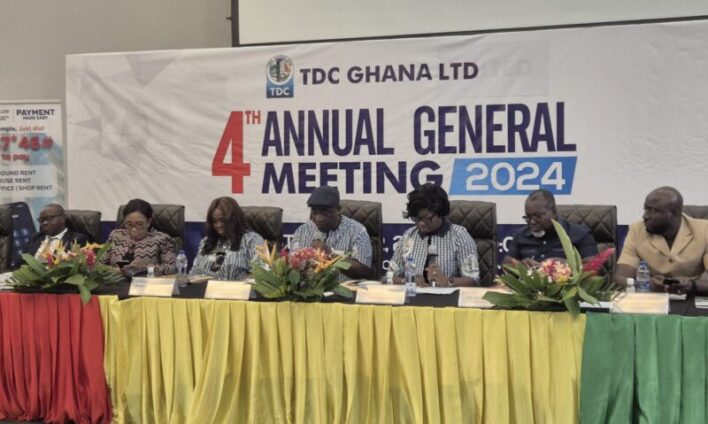John Boadu, the Director-General of the State Interest and Governance Authority (SIGA), has disclosed that the government is preparing to divest its interest in most state-owned enterprises (SOEs).
Mr. Boadu stated that this would allow Ghanaians to also invest in such institutions by buying shares.
He revealed this at the fourth annual general meeting of the TDC Ghana Limited, saying, “The government is preparing itself to diversify its interest in most SOEs, 100 percent ownership for what, and the people of this country are also ready to invest in these entities.”
He noted that a look at most countries that have developed showed that governments have limited shares in their SOE sectors, adding that this ensures that people who are capable are put on the board.
He added: “You are not limited to costs that must be paid by the government, and you must pay those costs that ensure that you are not able to make the required profits.
Touching on the operations of TDC, Mr. Boadu commended the company for its performance over the past years, adding that it is about time that state limited liability entities challenge the market in which they operate.
The SIGA Director-General reminded TDC of its ability to borrow at the backbone of the government, provided its financials are good.
Commenting on the provision of affordable houses to Ghanaians, he said for the TDC to provide such houses and still survive, “the government must take the difference so they can survive; that’s how it works elsewhere.”
Meanwhile, Kofi Brako, the Board Chairman of the TDC, has appealed to the government to involve TDC in more affordable housing projects to help address the challenges in the sector and promote growth.
He said the real estate sector in Ghana continues to stand out as one of the fastest-growing industries, showing consistent expansion over the years, revealing that the industry over the years has experienced growth ranging between eight and 10 per cent.
This, he noted, was fuelled by the country’s rise in population and urbanisation trends, adding that, despite the promising development in the sector, Ghana grapples with a significant housing deficit, with Ghana currently having an estimated deficit of 1.8 million units of houses.
Latest Stories
-
Kwesi Yankah: The rocky road to Ashesi
10 minutes -
Ofori-Atta unable to appear before OSP on June 2 due to health reasons – Frank Davies
55 minutes -
Conservative historian wins Polish presidential vote
1 hour -
GoldBod can stabilise cedi if we get it right, says Association of Banks CEO, John Awuah
2 hours -
Man arrested in Western Region for illegal firearm possession
2 hours -
Football and other premium TV being pirated at ‘industrial scale’
2 hours -
Tanzanian politician’s lawyers ask UN to declare his detention arbitrary
3 hours -
Nigeria detains soldiers, police over weapons sales to armed groups
3 hours -
Ghana gold output could rise 6.25% to 5.1 million ounces in 2025
3 hours -
French Open scheduling pleas ‘like hitting head against wall’
3 hours -
US court won’t lift judge’s block on Trump’s government overhaul
3 hours -
‘Angry’ Alcaraz beats Shelton to reach quarters
3 hours -
Spurs to complete £21m Danso signing
4 hours -
Manchester United second most valuable club despite struggles
4 hours -
MANSTECH stun Mfantsipim to clinch soccer glory
4 hours

